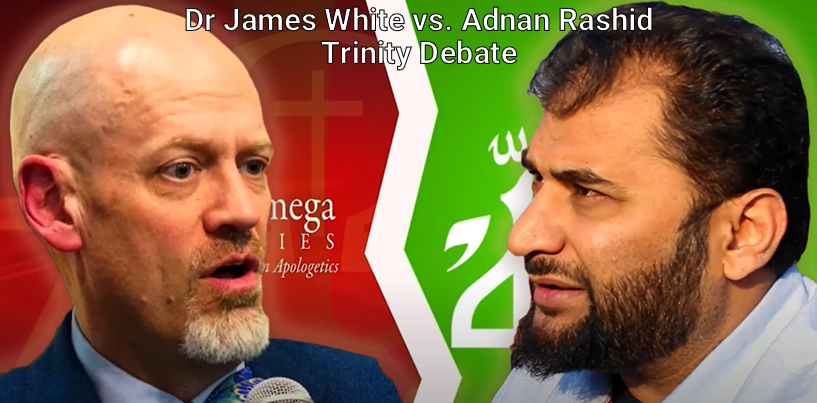A set of ten-year-old fellas helped me see the Gospel a hundred times clearer this week. I wanted to share some initially processed thoughts as a result. As I began to share with them how Jesus’ Cross is a ransom for sinners, a boy named Andrew said, “I don’t think anyone should be able to do that for someone else.” It’s not the first time I’ve been told something like this, but the Christian life sometimes just brings its truths when it wants to.
The Gospel is scandalous. It’s offensive to us all that we’re by nature never good enough for God.
Driving home that night I thought about the analogy I’ve been taught and used perhaps tens of thousands of times with people in evangelism. That the Gospel is like a guilty criminal in a courtroom being slapped with a one million dollar fine that he can’t pay and someone else stepping in and paying the fine for him. That we’re not forgiven because we’re good people, but because we’ve had our fine paid by someone else. It’s a good analogy, but God founded it more this week in a few great ways. I’m so glad! Let me summarize the agenda I have in presenting Law and Gospel to a person to make sense of that analogy. I talk about sin using the Ten Commandments like Jesus and his Apostles did. I look to establish guilt according to Romans 3:20 (cf. Psalm 63:11; Galatians 3:24, etc.). I do this to target the person’s conscience, the safest place to go. I can’t rightly proclaim a Savior without proclaiming sin and I live among a people in the US today who are very spiritually stupid as to the Gospel. I then talk about the day of that person’s judgment to come that will clearly not go well if God judges them by the Law. I explain to them that lawbreaking condemns, but that Jesus’ life, death, and Resurrection can be the means to “settle out of court” with God today through repentance and faith. I invite people to know God as Father and not merely as judge, but I have to remember that the Gospel- while more- is not less than a summons into a courtroom. Andrew thought it wasn’t right. How is it?
How could or why would the Creator accept the blood of Jesus on anyone’s behalf? How is that justice in the triune God? My faith began to inform my mind in remarkable ways. Here are a few very brief preliminary thoughts that came to mind:
- One of my first thoughts was how in our self-righteousness we court a gospel for “good people” like us but not for the truly bad people. We show our colors here. Many simply show more of their nature for which Jesus died in this. They’re offended that rapists can be forgiven, but not liars, thieves, fornicators, etc. You know, their sins. But Jesus’ atonement was made for all kinds of men and women. God’s mercy’s his to give. He merits giving it from Calvary. This was his plan. He being the one ultimately offended has set the terms. The terms are that all who trust in the Son, because of the Son’s works, will be fully and joyously accepted. Jesus stepping into the courtroom means this.
- Jesus’ works being planned from before the world by the triune God to atone for his elect does not just bring any single offender from red to black in the ledger of justice. For the triune God, Jesus’ atonement is able to actually and literally usher in a new heavens and new earth! Pause for a moment and consider the worth of that one sacrifice then. That’s what we’re asking each sinner to let into the courtroom while they enter their guilty plea. How uniquely excellent it was for that life to die?! The ramifications of this universe cleaning work then enters into each docket case in the court, but it’s far larger. Every act of mercy by God toward any being (including grandma) with which he graciously extends it is more than justified by the work of the Son on Calvary. None can call it unjust when considering the extent of Jesus’ pardon. Sin has brought in everything bad. Jesus, by his immaculate life, blesses and brings in forever everything that’s good immutably. Jesus stepping into the courtroom means this.
- We imagine some sinful briber simply bribing a judge. But the Christ is not this. The judge is perfect and the sacrifice is both perfect and perfecting. Jesus isn’t like some unscrupulous or sinful rich uncle who can help his spoiled nephew avoid justice. The whole nature of the one making and receiving the payment changes the nature of its acceptability in the purest courtroom. Christians understand who God the Son is. Jesus stepping into the courtroom means this.
- Jesus’ atonement actually procures new hearts. Truly changed lives from the very day regeneration is granted. Romans 8:1, 29-30. Jesus actually rights the wrongs. Oh, Christian, marvel with me! A rapist (a heinous crime worthy of death) may be killed or go to jail for life. I would support this 100% of the time as a citizen. But what does that ultimately right? Does it take away the crime? Does it heal the heart or body of the victim wronged? Does it ever grant true healing to the victim? No. Even if he or she is in the prison of hell, what is corrected by it before God or for the victim? Nothing. But a mercy the size of the death of Christ triumphs over judgment in a way only possible in the Creator’s hands. Please hear me. If the Lord atones, he brings up new eternal bodies. The victims will be as changed as the offenders and the Gospel can actually reconcile the two- to God and each other- and for eternity. It will not be a façade, but a complete restoration. A new creation. Hence, the atonement alone can come from Christ. Consider the scope of the power of the Gospel to reconcile God to you, a rapist to a victim, a wicked slaveowner to a slave, or a murderer to her aborted child! That’s Christianity. That’s my religion. Jesus’ atonement literally purchases a complete grace. Not a single shell casing will be found in the soil of the new earth and the Cross is the only reason why so keep this in mind when you ask someone to believe the Gospel in their own life. Hebrews 3:13. Christ brings in the kind of grace victims run to show even now, how much more when in a glorified body. That’s what Jesus bought on the tree and what he offers to all men. It won’t apply to both parties all the time, sure, but it will apply. Jesus can reconcile pedophiles to abused kids and vice versa. They won’t always be those people forever. He actually bought a world where it’s all possible. A true one in ways nothing else, not even a hundred years in jail ever could. New bodies, new heaven, new earth. Jesus stepping into the courtroom means this.
- All suffering and death was crushed and/or promised to be erased one day by the Resurrection. That means that all evils will cease someday when God planned it to. LGBTPPPFBQA-ism, all rape, murder, etc. All gone forever because of it. Just one sacrifice did it all. But not only that, it also means that all cancers will be gone. All AIDS, all flu, all anencephaly, all down syndrome, all insanity. Jesus stepping into the courtroom means all this and more. But not only that, it also means that all natural disasters will cease. No more death…at all. Jesus stepping into the courtroom means this.
As I consider the scope of the atonement it’s occurring to me more and more that while the end of death means nothing to the perishing in this life, it means something to everyone in time nonetheless. If Jesus doesn’t pay for your sin, you will, and you can’t. You’ll just be sent away. Jesus, being worth more than us all paying for our sins (1 John 2:2) means literally the reconciling of the universe to its God. It’s that big. It enters each of our lives or not, but it also far transcends each of us.
God has and will surely make it right by himself and for himself. May you see it all with glorified eyes! Keep all this in mind next time you ask someone how they’ll do on the Day of Judgment and why they should repent of their sins and believe in Christ’s Cross and Resurrection.
God bless!







